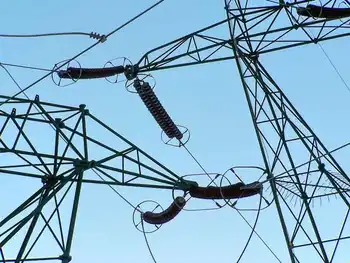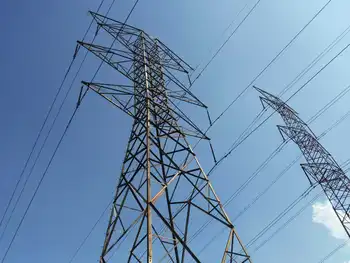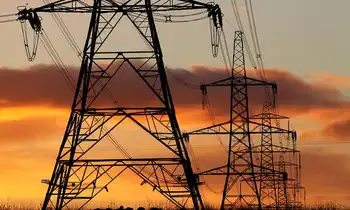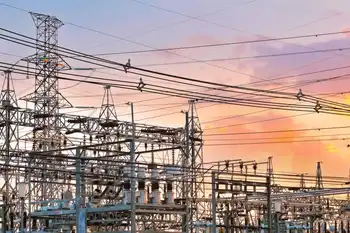Muskrat Falls rate mitigation offsets Newfoundland Power's rate stabilization decrease as NL Hydro begins cost recovery; Public Utilities Board approval enables collections while Labrador-Island Link nears commissioning, stabilizing electricity rates despite megaproject delays, overruns.
Key Points
Muskrat Falls rate mitigation is NL Hydro's cost recovery via power rates to stabilize bills as commissioning nears.
✅ Offsets 6.4% decrease with a 6.1% rate increase
✅ About 6% now funds NL Hydro's rate mitigation
✅ Collections begin as Labrador-Island Link nears commissioning
With their July electricity bill, Newfoundland Power customers have begun paying for Muskrat Falls, though a lump-sum credit was also announced to offset costs and bills haven't significantly increased — yet.
In a July newsletter, Newfoundland Power said electricity bills were set to decrease by 6.4 per cent as part of the annual rate stabilization adjustment, which reflects the cost of electricity generation.
Instead, that decrease has been offset by a 6.1 increase in electricity rates so Newfoundland and Labrador Hydro can begin recovering the cost of Muskrat Falls, with a $5.2-billion federal package also underpinning the project, the $13-billion hydroelectric megaproject that is billions over budget and years behind schedule.
That means for residential customers, electricity rates will decrease to 12.346 cents per kilowatt, though the basic customer charge will go up slightly from $15.81 to $15.83. According to an N.L. Hydro spokesperson, about six per cent of electricity bills will now go toward what it calls a "rate mitigation fund."
N.L. Hydro claims victory in Muskrat Falls arbitration dispute with Astaldi
Software troubles blamed for $260M Muskrat Falls cost increase, with N.L. power rates stable for now
The spokesperson said N.L. Hydro is expecting the rate increase to result in $43 million this year, according to a recent financial update from the energy corporation — a tiny fraction of the project's cost.
N.L. Hydro asked the Public Utilities Board to approve the rate increase, a process similar to Nova Scotia's recent 14% approval by its regulator, in May. In a letter, Energy, Industry and Technology Minister Andrew Parsons supported the increase, though he asked N.L. Hydro to keep electricity rates "as close to current levels as possible.
Province modifies order in council
Muskrat Falls is not yet fully online — largely due to software problems with the Labrador-Island Link transmission line — and an order in council dictated that ratepayers on the island of Newfoundland would not begin paying for the project until the project was fully commissioned.
The provincial government modified that order in council so N.L. Hydro can begin collecting costs associated with Muskrat Falls once the project is "nearing" commissioning.
In June, N.L. Hydro said the project was expected to finally be completed by the end of the year.
In an interview with CBC News, Progressive Conservative interim leader David Brazil said the decision to begin recovering the cost of Muskrat Falls from consumers should have been delayed.
"There was an opportunity here for people to get some reprieve when it came to their electricity bills and this administration chose not to do that, not to help the people while they're struggling," he said.
In a statement, Parsons said reducing the rate was not an option, and would have resulted in increased borrowing costs for Muskrat Falls.
"Reducing the rate for one year to have it increase significantly the following year is not consistent with rate mitigation and also places an increased financial burden on taxpayers one year from now," Parsons said.
Decision 'reasonable': Consumer advocate
Brazil said his party didn't know the payments from Muskrat Falls would start in July, and criticized the government for not being more transparent.
A person wearing a blue shirt and black blazer stands outside on a lawn.
N.L. consumer advocate Dennis Browne says it makes sense to begin recouping the cost of Muskrat Falls. (Garrett Barry/CBC)
Newfoundland and Labrador consumer advocate Dennis Browne said the decision to begin collecting costs from consumers was "reasonable."
"We're into a financial hole due to Muskrat Falls, and what has happened is in order to stabilize rates, we have gone into rate stabilization efforts," he said.
In February, the provincial and federal governments signed a complex agreement to shield ratepayers aimed at softening the worst of the financial impact from Muskrat Falls. Browne noted even with the agreement, the provincial government will have to pay hundreds of millions in order to stabilize electricity rates.
"Muskrat Falls would cost us $0.23 a kilowatt, and that is out of the range of affordability for most people, and that's why we're into rate mitigation," he said. "This was part of a rate mitigation effort, and I accepted it as part of that."
Related News












